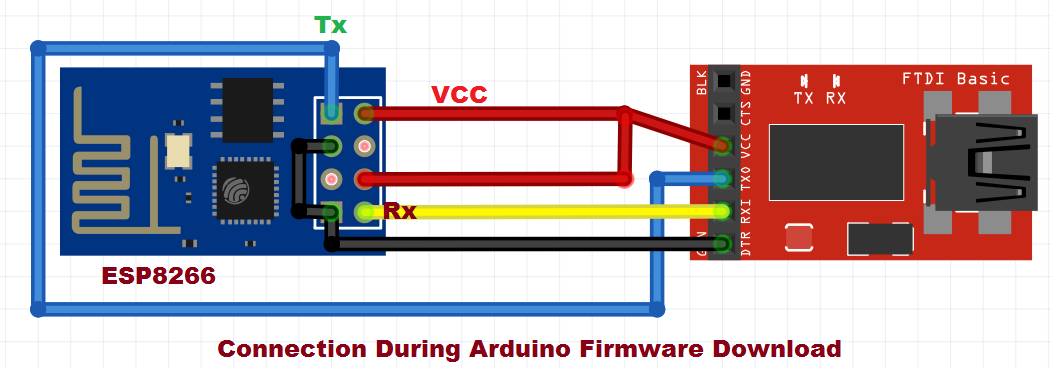/*******************************************************************************
* Copyright (c) 2013 IBM Corp.
*
* All rights reserved. This program and the accompanying materials
* are made available under the terms of the Eclipse Public License v1.0
* and Eclipse Distribution License v1.0 which accompany this distribution.
*
* The Eclipse Public License is available at
* http://www.eclipse.org/legal/epl-v10.html
* and the Eclipse Distribution License is available at
* http://www.eclipse.org/org/documents/edl-v10.php.
*
* Contributors:
* Andrew Banks - initial API and implementation and initial documentation
*******************************************************************************/
// Only expose a single object name in the global namespace.
// Everything must go through this module. Global Paho.MQTT module
// only has a single public function, client, which returns
// a Paho.MQTT client object given connection details.
/**
* Send and receive messages using web browsers.
* <p>
* This programming interface lets a JavaScript client application use the MQTT V3.1 or
* V3.1.1 protocol to connect to an MQTT-supporting messaging server.
*
* The function supported includes:
* <ol>
* <li>Connecting to and disconnecting from a server. The server is identified by its host name and port number.
* <li>Specifying options that relate to the communications link with the server,
* for example the frequency of keep-alive heartbeats, and whether SSL/TLS is required.
* <li>Subscribing to and receiving messages from MQTT Topics.
* <li>Publishing messages to MQTT Topics.
* </ol>
* <p>
* The API consists of two main objects:
* <dl>
* <dt><b>{@link Paho.MQTT.Client}</b></dt>
* <dd>This contains methods that provide the functionality of the API,
* including provision of callbacks that notify the application when a message
* arrives from or is delivered to the messaging server,
* or when the status of its connection to the messaging server changes.</dd>
* <dt><b>{@link Paho.MQTT.Message}</b></dt>
* <dd>This encapsulates the payload of the message along with various attributes
* associated with its delivery, in particular the destination to which it has
* been (or is about to be) sent.</dd>
* </dl>
* <p>
* The programming interface validates parameters passed to it, and will throw
* an Error containing an error message intended for developer use, if it detects
* an error with any parameter.
* <p>
* Example:
*
* <code><pre>
client = new Paho.MQTT.Client(location.hostname, Number(location.port), "clientId");
client.onConnectionLost = onConnectionLost;
client.onMessageArrived = onMessageArrived;
client.connect({onSuccess:onConnect});
function onConnect() {
// Once a connection has been made, make a subscription and send a message.
console.log("onConnect");
client.subscribe("/World");
message = new Paho.MQTT.Message("Hello");
message.destinationName = "/World";
client.send(message);
};
function onConnectionLost(responseObject) {
if (responseObject.errorCode !== 0)
console.log("onConnectionLost:"+responseObject.errorMessage);
};
function onMessageArrived(message) {
console.log("onMessageArrived:"+message.payloadString);
client.disconnect();
};
* </pre></code>
* @namespace Paho.MQTT
*/
if (typeof Paho === "undefined") {
Paho = {};
}
Paho.MQTT = (function (global) {
// Private variables below, these are only visible inside the function closure
// which is used to define the module.
var version = "@VERSION@";
var buildLevel = "@BUILDLEVEL@";
/**
* Unique message type identifiers, with associated
* associated integer values.
* @private
*/
var MESSAGE_TYPE = {
CONNECT: 1,
CONNACK: 2,
PUBLISH: 3,
PUBACK: 4,
PUBREC: 5,
PUBREL: 6,
PUBCOMP: 7,
SUBSCRIBE: 8,
SUBACK: 9,
UNSUBSCRIBE: 10,
UNSUBACK: 11,
PINGREQ: 12,
PINGRESP: 13,
DISCONNECT: 14
};
// Collection of utility methods used to simplify module code
// and promote the DRY pattern.
/**
* Validate an object's parameter names to ensure they
* match a list of expected variables name for this option
* type. Used to ensure option object passed into the API don't
* contain erroneous parameters.
* @param {Object} obj - User options object
* @param {Object} keys - valid keys and types that may exist in obj.
* @throws {Error} Invalid option parameter found.
* @private
*/
var validate = function(obj, keys) {
for (var key in obj) {
if (obj.hasOwnProperty(key)) {
if (keys.hasOwnProperty(key)) {
if (typeof obj[key] !== keys[key])
throw new Error(format(ERROR.INVALID_TYPE, [typeof obj[key], key]));
} else {
var errorStr = "Unknown property, " + key + ". Valid properties are:";
for (var key in keys)
if (keys.hasOwnProperty(key))
errorStr = errorStr+" "+key;
throw new Error(errorStr);
}
}
}
};
/**
* Return a new function which runs the user function bound
* to a fixed scope.
* @param {function} User function
* @param {object} Function scope
* @return {function} User function bound to another scope
* @private
*/
var scope = function (f, scope) {
return function () {
return f.apply(scope, arguments);
};
};
/**
* Unique message type identifiers, with associated
* associated integer values.
* @private
*/
var ERROR = {
OK: {code:0, text:"AMQJSC0000I OK."},
CONNECT_TIMEOUT: {code:1, text:"AMQJSC0001E Connect timed out."},
SUBSCRIBE_TIMEOUT: {code:2, text:"AMQJS0002E Subscribe timed out."},
UNSUBSCRIBE_TIMEOUT: {code:3, text:"AMQJS0003E Unsubscribe timed out."},
PING_TIMEOUT: {code:4, text:"AMQJS0004E Ping timed out."},
INTERNAL_ERROR: {code:5, text:"AMQJS0005E Internal error. Error Message: {0}, Stack trace: {1}"},
CONNACK_RETURNCODE: {code:6, text:"AMQJS0006E Bad Connack return code:{0} {1}."},
SOCKET_ERROR: {code:7, text:"AMQJS0007E Socket error:{0}."},
SOCKET_CLOSE: {code:8, text:"AMQJS0008I Socket closed."},
MALFORMED_UTF: {code:9, text:"AMQJS0009E Malformed UTF data:{0} {1} {2}."},
UNSUPPORTED: {code:10, text:"AMQJS0010E {0} is not supported by this browser."},
INVALID_STATE: {code:11, text:"AMQJS0011E Invalid state {0}."},
INVALID_TYPE: {code:12, text:"AMQJS0012E Invalid type {0} for {1}."},
INVALID_ARGUMENT: {code:13, text:"AMQJS0013E Invalid argument {0} for {1}."},
UNSUPPORTED_OPERATION: {code:14, text:"AMQJS0014E Unsupported operation."},
INVALID_STORED_DATA: {code:15, text:"AMQJS0015E Invalid data in local storage key={0} value={1}."},
INVALID_MQTT_MESSAGE_TYPE: {code:16, text:"AMQJS0016E Invalid MQTT message type {0}."},
MALFORMED_UNICODE: {code:17, text:"AMQJS0017E Malformed Unicode string:{0} {1}."},
};
/** CONNACK RC Meaning. */
var CONNACK_RC = {
0:"Connection Accepted",
1:"Connection Refused: unacceptable protocol version",
2:"Connection Refused: identifier rejected",
3:"Connection Refused: server unavailable",
4:"Connection Refused: bad user name or password",
5:"Connection Refused: not authorized"
};
/**
* Format an error message text.
* @private
* @param {error} ERROR.KEY value above.
* @param {substitutions} [array] substituted into the text.
* @return the text with the substitutions made.
*/
var format = function(error, substitutions) {
var text = error.text;
if (substitutions) {
var field,start;
for (var i=0; i<substitutions.length; i++) {
field = "{"+i+"}";
start = text.indexOf(field);
if(start > 0) {
var part1 = text.substring(0,start);
var part2 = text.substring(start+field.length);
text = part1+substitutions[i]+part2;
}
}
}
return text;
};
//MQTT protocol and version 6 M Q I s d p 3
var MqttProtoIdentifierv3 = [0x00,0x06,0x4d,0x51,0x49,0x73,0x64,0x70,0x03];
//MQTT proto/version for 311 4 M Q T T 4
var MqttProtoIdentifierv4 = [0x00,0x04,0x4d,0x51,0x54,0x54,0x04];
/**
* Construct an MQTT wire protocol message.
* @param type MQTT packet type.
* @param options optional wire message attributes.
*
* Optional properties
*
* messageIdentifier: message ID in the range [0..65535]
* payloadMessage: Application Message - PUBLISH only
* connectStrings: array of 0 or more Strings to be put into the CONNECT payload
* topics: array of strings (SUBSCRIBE, UNSUBSCRIBE)
* requestQoS: array of QoS values [0..2]
*
* "Flag" properties
* cleanSession: true if present / false if absent (CONNECT)
* willMessage: true if present / false if absent (CONNECT)
* isRetained: true if present / false if absent (CONNECT)
* userName: true if present / false if absent (CONNECT)
* password: true if present / false if absent (CONNECT)
* keepAliveInterval: integer [0..65535] (CONNECT)
*
* @private
* @ignore
*/
var WireMessage = function (type, options) {
this.type = type;
for (var name in options) {
if (options.hasOwnProperty(name)) {
this[name] = options[name];
}
}
};
WireMessage.prototype.encode = function() {
// Compute the first byte of the fixed header
var first = ((this.type & 0x0f) << 4);
/*
* Now calculate the length of the variable header + payload by adding up the lengths
* of all the component parts
*/
var remLength = 0;
var topicStrLength = new Array();
var destinationNameLength = 0;
// if the message contains a messageIdentifier then we need two bytes for that
if (this.messageIdentifier != undefined)
remLength += 2;
switch(this.type) {
// If this a Connect then we need to include 12 bytes for its header
case MESSAGE_TYPE.CONNECT:
switch(this.mqttVersion) {
case 3:
remLength += MqttProtoIdentifierv3.length + 3;
break;
case 4:
remLength += MqttProtoIdentifierv4.length + 3;
break;
}
remLength += UTF8Length(this.clientId) + 2;
if (this.willMessage != undefined) {
remLength += UTF8Length(this.willMessage.destinationName) + 2;
// Will message is always a string, sent as UTF-8 characters with a preceding length.
var willMessagePayloadBytes = this.willMessage.payloadBytes;
if (!(willMessagePayloadBytes instanceof Uint8Array))
willMessagePayloadBytes = new Uint8Array(payloadBytes);
remLength += willMessagePayloadBytes.byteLength +2;
}
if (this.userName != undefined)
remLength += UTF8Length(this.userName) + 2;
if (this.password != undefined)
remLength += UTF8Length(this.password) + 2;
break;
// Subscribe, Unsubscribe can both contain topic strings
case MESSAGE_TYPE.SUBSCRIBE:
first |= 0x02; // Qos = 1;
for ( var i = 0; i < this.topics.length; i++) {
topicStrLength[i] = UTF8Length(this.topics[i]);
remLength += topicStrLength[i] + 2;
}
remLength += this.requestedQos.length; // 1 byte for each topic's Qos
// QoS on Subscribe only
break;
case MESSAGE_TYPE.UNSUBSCRIBE:
first |= 0x02; // Qos = 1;
for ( var i = 0; i < this.topics.length; i++) {
topicStrLength[i] = UTF8Length(this.topics[i]);
remLength += topicStrLength[i] + 2;
}
break;
case MESSAGE_TYPE.PUBREL:
first |= 0x02; // Qos = 1;
break;
case MESSAGE_TYPE.PUBLISH:
if (this.payloadMessage.duplicate) first |= 0x08;
first = first |= (this.payloadMessage.qos << 1);
if (this.payloadMessage.retained) first |= 0x01;
destinationNameLength = UTF8Length(this.payloadMessage.destinationName);
remLength += destinationNameLength + 2;
var payloadBytes = this.payloadMessage.payloadBytes;
remLength += payloadBytes.byteLength;
if (payloadBytes instanceof ArrayBuffer)
payloadBytes = new Uint8Array(payloadBytes);
else if (!(payloadBytes instanceof Uint8Array))
payloadBytes = new Uint8Array(payloadBytes.buffer);
break;
case MESSAGE_TYPE.DISCONNECT:
break;
default:
;
}
// Now we can allocate a buffer for the message
var mbi = encodeMBI(remLength); // Convert the length to MQTT MBI format
var pos = mbi.length + 1; // Offset of start of variable header
var buffer = new ArrayBuffer(remLength + pos);
var byteStream = new Uint8Array(buffer); // view it as a sequence of bytes
//Write the fixed header into the buffer
byteStream[0] = first;
byteStream.set(mbi,1);
// If this is a PUBLISH then the variable header starts with a topic
if (this.type == MESSAGE_TYPE.PUBLISH)
pos = writeString(this.payloadMessage.destinationName, destinationNameLength, byteStream, pos);
// If this is a CONNECT then the variable header contains the protocol name/version, flags and keepalive time
else if (this.type == MESSAGE_TYPE.CONNECT) {
switch (this.mqttVersion) {
case 3:
byteStream.set(MqttProtoIdentifierv3, pos);
pos += MqttProtoIdentifierv3.length;
break;
case 4:
byteStream.set(MqttProtoIdentifierv4, pos);
pos += MqttProtoIdentifierv4.length;
break;
}
var connectFlags = 0;
if (this.cleanSession)
connectFlags = 0x02;
if (this.willMessage != undefined ) {
connectFlags |= 0x04;
connectFlags |= (this.willMessage.qos<<3);
if (this.willMessage.retained) {
connectFlags |= 0x20;
}
}
if (this.userName != undefined)
connectFlags |= 0x80;
if (this.password != undefined)
connectFlags |= 0x40;
byteStream[pos++] = connectFlags;
pos = writeUint16 (this.keepAliveInterval, byteStream, pos);
}
// Output the messageIdentifier - if there is one
if (this.messageIdentifier != undefined)
pos = writeUint16 (this.messageIdentifier, byteStream, pos);
switch(this.type) {
case MESSAGE_TYPE.CONNECT:
pos = writeString(this.clientId, UTF8Length(this.clientId), byteStream, pos);
if (this.willMessage != undefined) {
pos = writeString(this.willMessage.destinationName, UTF8Length(this.willMessage.destinationName), byteStream, pos);
pos = writeUint16(willMessagePayloadBytes.byteLength, byteStream, pos);
byteStream.set(willMessagePayloadBytes, pos);
pos += willMessagePayloadBytes.byteLength;
}
if (this.userName != undefined)
pos = writeString(this.userName, UTF8Length(this.userName), byteStream, pos);
if (this.password != undefined)
pos = writeString(this.password, UTF8Length(this.password), byteStream, pos);
break;
case MESSAGE_TYPE.PUBLISH:
// PUBLISH has a text or binary payload, if text do not add a 2 byte length field, just the UTF characters.
byteStream.set(payloadBytes, pos);
break;
// case MESSAGE_TYPE.PUBREC:
// case MESSAGE_TYPE.PUBREL:
// case MESSAGE_TYPE.PUBCOMP:
// break;
case MESSAGE_TYPE.SUBSCRIBE:
// SUBSCRIBE has a list of topic strings and request QoS
for (var i=0; i<this.topics.length; i++) {
pos = writeString(this.topics[i], topicStrLength[i], byteStream, pos);
byteStream[pos++] = this.requestedQos[i];
}
break;
case MESSAGE_TYPE.UNSUBSCRIBE:
// UNSUBSCRIBE has a list of topic strings
for (var i=0; i<this.topics.length; i++)
pos = writeString(this.topics[i], topicStrLength[i], byteStream, pos);
break;
default:
// Do nothing.
}
return buffer;
}
function decodeMessage(input,pos) {
var startingPos = pos;
var first = input[pos];
var type = first >> 4;
var messageInfo = first &= 0x0f;
pos += 1;
// Decode the remaining length (MBI format)
var digit;
var remLength = 0;
var multiplier = 1;
do {
if (pos == input.length) {
return [null,startingPos];
}
digit = input[pos++];
remLength += ((digit & 0x7F) * multiplier);
multiplier *= 128;
} while ((digit & 0x80) != 0);
var endPos = pos+remLength;
if (endPos > input.length) {
return [null,startingPos];
}
var wireMessage = new WireMessage(type);
switch(type) {
case MESSAGE_TYPE.CONNACK:
var connectAcknowledgeFlags = input[pos++];
if (connectAcknowledgeFlags & 0x01)
wireMessage.sessionPresent = true;
wireMessage.returnCode = input[pos++];
break;
case MESSAGE_TYPE.PUBLISH:
var qos = (messageInfo >> 1) & 0x03;
var len = readUint16(input, pos);
pos += 2;
var topicName = parseUTF8(input, pos, len);
pos += len;
// If QoS 1 or 2 there will be a messageIdentifier
if (qos > 0) {
wireMessage.messageIdentifier = readUint16(input, pos);
pos += 2;
}
var message = new Paho.MQTT.Message(input.subarray(pos, endPos));
if ((messageInfo & 0x01) == 0x01)
message.retained = true;
if ((messageInfo & 0x08) == 0x08)
message.duplicate = true;
message.qos = qos;
message.destinationName = topicName;
wireMessage.payloadMessage = message;
break;
case MESSAGE_TYPE.PUBACK:
case MESSAGE_TYPE.PUBREC:
case MESSAGE_TYPE.PUBREL:
case MESSAGE_TYPE.PUBCOMP:
case MESSAGE_TYPE.UNSUBACK:
wireMessage.messageIdentifier = readUint16(input, pos);
break;
case MESSAGE_TYPE.SUBACK:
wireMessage.messageIdentifier = readUint16(input, pos);
pos += 2;
wireMessage.returnCode = input.subarray(pos, endPos);
break;
default:
;
}
return [wireMessage,endPos];
}
function writeUint16(input, buffer, offset) {
buffer[offset++] = input >> 8; //MSB
buffer[offset++] = input % 256; //LSB
return offset;
}
function writeString(input, utf8Length, buffer, offset) {
offset = writeUint16(utf8Length, buffer, offset);
stringToUTF8(input, buffer, offset);
return offset + utf8Length;
}
function readUint16(buffer, offset) {
return 256*buffer[offset] + buffer[offset+1];
}
/**
* Encodes an MQTT Multi-Byte Integer
* @private
*/
function encodeMBI(number) {
var output = new Array(1);
var numBytes = 0;
do {
var digit = number % 128;
number = number >> 7;
if (number > 0) {
digit |= 0x80;
}
output[numBytes++] = digit;
} while ( (number > 0) && (numBytes<4) );
return output;
}
/**
* Takes a String and calculates its length in bytes when encoded in UTF8.
* @private
*/
function UTF8Length(input) {
var output = 0;
for (var i = 0; i<input.length; i++)
{
var charCode = input.charCodeAt(i);
if (charCode > 0x7FF)
{
// Surrogate pair means its a 4 byte character
if (0xD800 <= charCode && charCode <= 0xDBFF)
{
i++;
output++;
}
output +=3;
}
else if (charCode > 0x7F)
output +=2;
else
output++;
}
return output;
}
/**
* Takes a String and writes it into an array as UTF8 encoded bytes.
* @private
*/
function stringToUTF8(input, output, start) {
var pos = start;
for (var i = 0; i<input.length; i++) {
var charCode = input.charCodeAt(i);
// Check for a surrogate pair.
if (0xD800 <= charCode && charCode <= 0xDBFF) {
var lowCharCode = input.charCodeAt(++i);
if (isNaN(lowCharCode)) {
throw new Error(format(ERROR.MALFORMED_UNICODE, [charCode, lowCharCode]));
}
charCode = ((charCode - 0xD800)<<10) + (lowCharCode - 0xDC00) + 0x10000;
}
if (charCode <= 0x7F) {
output[pos++] = charCode;
} else if (charCode <= 0x7FF) {
output[pos++] = charCode>>6 & 0x1F | 0xC0;
output[pos++] = charCode & 0x3F | 0x80;
} else if (charCode <= 0xFFFF) {
output[pos++] = charCode>>12 & 0x0F | 0xE0;
output[pos++] = charCode>>6 & 0x3F | 0x80;
output[pos++] = charCode & 0x3F | 0x80;
} else {
output[pos++] = charCode>>18 & 0x07 | 0xF0;
output[pos++] = charCode>>12 & 0x3F | 0x80;
output[pos++] = charCode>>6 & 0x3F | 0x80;
output[pos++] = charCode & 0x3F | 0x80;
};
}
return output;
}
function parseUTF8(input, offset, length) {
var output = "";
var utf16;
var pos = offset;
while (pos < offset+length)
{
var byte1 = input[pos++];
if (byte1 < 128)
utf16 = byte1;
else
{
var byte2 = input[pos++]-128;
if (byte2 < 0)
throw new Error(format(ERROR.MALFORMED_UTF, [byte1.toString(16), byte2.toString(16),""]));
if (byte1 < 0xE0) // 2 byte character
utf16 = 64*(byte1-0xC0) + byte2;
else
{
var byte3 = input[pos++]-128;
if (byte3 < 0)
throw new Error(format(ERROR.MALFORMED_UTF, [byte1.toString(16), byte2.toString(16), byte3.toString(16)]));
if (byte1 < 0xF0) // 3 byte character
utf16 = 4096*(byte1-0xE0) + 64*byte2 + byte3;
else
{
var byte4 = input[pos++]-128;
if (byte4 < 0)
throw new Error(format(ERROR.MALFORMED_UTF, [byte1.toString(16), byte2.toString(16), byte3.toString(16), byte4.toString(16)]));
if (byte1 < 0xF8) // 4 byte character
utf16 = 262144*(byte1-0xF0) + 4096*byte2 + 64*byte3 + byte4;
else // longer encodings are not supported
throw new Error(format(ERROR.MALFORMED_UTF, [byte1.toString(16), byte2.toString(16), byte3.toString(16), byte4.toString(16)]));
}
}
}
if (utf16 > 0xFFFF) // 4 byte character - express as a surrogate pair
{
utf16 -= 0x10000;
output += String.fromCharCode(0xD800 + (utf16 >> 10)); // lead character
utf16 = 0xDC00 + (utf16 & 0x3FF); // trail character
}
output += String.fromCharCode(utf16);
}
return output;
}
/**
* Repeat keepalive requests, monitor responses.
* @ignore
*/
var Pinger = function(client, window, keepAliveInterval) {
this._client = client;
this._window = window;
this._keepAliveInterval = keepAliveInterval*1000;
this.isReset = false;
var pingReq = new WireMessage(MESSAGE_TYPE.PINGREQ).encode();
var doTimeout = function (pinger) {
return function () {
return doPing.apply(pinger);
};
};
/** @ignore */
var doPing = function() {
if (!this.isReset) {
this._client._trace("Pinger.doPing", "Timed out");
this._client._disconnected( ERROR.PING_TIMEOUT.code , format(ERROR.PING_TIMEOUT));
} else {
this.isReset = false;
this._client._trace("Pinger.doPing", "send PINGREQ");
this._client.socket.send(pingReq);
this.timeout = this._window.setTimeout(doTimeout(this), this._keepAliveInterval);
}
}
this.reset = function() {
this.isReset = true;
this._window.clearTimeout(this.timeout);
if (this._keepAliveInterval > 0)
this.timeout = setTimeout(doTimeout(this), this._keepAliveInterval);
}
this.cancel = function() {
this._window.clearTimeout(this.timeout);
}
};
/**
* Monitor request completion.
* @ignore
*/
var Timeout = function(client, window, timeoutSeconds, action, args) {
this._window = window;
if (!timeoutSeconds)
timeoutSeconds = 30;
var doTimeout = function (action, client, args) {
return function () {
return action.apply(client, args);
};
};
this.timeout = setTimeout(doTimeout(action, client, args), timeoutSeconds * 1000);
this.cancel = function() {
this._window.clearTimeout(this.timeout);
}
};
/*
* Internal implementation of the Websockets MQTT V3.1 client.
*
* @name Paho.MQTT.ClientImpl @constructor
* @param {String} host the DNS nameof the webSocket host.
* @param {Number} port the port number for that host.
* @param {String} clientId the MQ client identifier.
*/
var ClientImpl = function (uri, host, port, path, clientId) {
// Check dependencies are satisfied in this browser.
if (!("WebSocket" in global && global["WebSocket"] !== null)) {
throw new Error(format(ERROR.UNSUPPORTED, ["WebSocket"]));
}
if (!("localStorage" in global && global["localStorage"] !== null)) {
throw new Error(format(ERROR.UNSUPPORTED, ["localStorage"]));
}
if (!("ArrayBuffer" in global && global["ArrayBuffer"] !== null)) {
throw new Error(format(ERROR.UNSUPPORTED, ["ArrayBuffer"]));
}
this._trace("Paho.MQTT.Client", uri, host, port, path, clientId);
this.host = host;
this.port = port;
this.path = path;
this.uri = uri;
this.clientId = clientId;
// Local storagekeys are qualified with the following string.
// The conditional inclusion of path in the key is for backward
// compatibility to when the path was not configurable and assumed to
// be /mqtt
this._localKey=host+":"+port+(path!="/mqtt"?":"+path:"")+":"+clientId+":";
// Create private instance-only message queue
// Internal queue of messages to be sent, in sending order.
this._msg_queue = [];
// Messages we have sent and are expecting a response for, indexed by their respective message ids.
this._sentMessages = {};
// Messages we have received and acknowleged and are expecting a confirm message for
// indexed by their respective message ids.
this._receivedMessages = {};
// Internal list of callbacks to be executed when messages
// have been successfully sent over web socket, e.g. disconnect
// when it doesn't have to wait for ACK, just message is dispatched.
this._notify_msg_sent = {};
// Unique identifier for SEND messages, incrementing
// counter as messages are sent.
this._message_identifier = 1;
// Used to determine the transmission sequence of stored sent messages.
this._sequence = 0;
// Load the local state, if any, from the saved version, only restore state relevant to this client.
for (var key in localStorage)
if ( key.indexOf("Sent:"+this._localKey) == 0
|| key.indexOf("Received:"+this._localKey) == 0)
this.restore(key);
};
// Messaging Client public instance members.
ClientImpl.prototype.host;
ClientImpl.prototype.port;
ClientImpl.prototype.path;
ClientImpl.prototype.uri;
ClientImpl.prototype.clientId;
// Messaging Client private instance members.
ClientImpl.prototype.socket;
/* true once we have received an acknowledgement to a CONNECT packet. */
ClientImpl.prototype.connected = false;
/* The largest message identifier allowed, may not be larger than 2**16 but
* if set smaller reduces the maximum number of outbound messages allowed.
*/
ClientImpl.prototype.maxMessageIdentifier = 65536;
ClientImpl.prototype.connectOptions;
ClientImpl.prototype.hostIndex;
ClientImpl.prototype.onConnectionLost;
ClientImpl.prototype.onMessageDelivered;
ClientImpl.prototype.onMessageArrived;
ClientImpl.prototype.traceFunction;
ClientImpl.prototype._msg_queue = null;
ClientImpl.prototype._connectTimeout;
/* The sendPinger monitors how long we allow before we send data to prove to the server that we are alive. */
ClientImpl.prototype.sendPinger = null;
/* The receivePinger monitors how long we allow before we require evidence that the server is alive. */
ClientImpl.prototype.receivePinger = null;
ClientImpl.prototype.receiveBuffer = null;
ClientImpl.prototype._traceBuffer = null;
ClientImpl.prototype._MAX_TRACE_ENTRIES = 100;
ClientImpl.prototype.connect = function (connectOptions) {
var connectOptionsMasked = this._traceMask(connectOptions, "password");
this._trace("Client.connect", connectOptionsMasked, this.socket, this.connected);
if (this.connected)
throw new Error(format(ERROR.INVALID_STATE, ["already connected"]));
if (this.socket)
throw new Error(format(ERROR.INVALID_STATE, ["already connected"]));
this.connectOptions = connectOptions;
if (connectOptions.uris) {
this.hostIndex = 0;
this._doConnect(connectOptions.uris[0]);
} else {
this._doConnect(this.uri);
}
};
ClientImpl.prototype.subscribe = function (filter, subscribeOptions) {
this._trace("Client.subscribe", filter, subscribeOptions);
if (!this.connected)
throw new Error(format(ERROR.INVALID_STATE, ["not connected"]));
var wireMessage = new WireMessage(MESSAGE_TYPE.SUBSCRIBE);
wireMessage.topics=[filter];
if (subscribeOptions.qos != undefined)
wireMessage.requestedQos = [subscribeOptions.qos];
else
wireMessage.requestedQos = [0];
if (subscribeOptions.onSuccess) {
wireMessage.onSuccess = function(grantedQos) {subscribeOptions.onSuccess({invocationContext:subscribeOptions.invocationContext,grantedQos:grantedQos});};
}
if (subscribeOptions.onFailure) {
wireMessage.onFailure = function(errorCode) {subscribeOptions.onFailure({invocationContext:subscribeOptions.invocationContext,errorCode:errorCode});};
}
if (subscribeOptions.timeout) {
wireMessage.timeOut = new Timeout(this, window, subscribeOptions.timeout, subscribeOptions.onFailure
, [{invocationContext:subscribeOptions.invocationContext,
errorCode:ERROR.SUBSCRIBE_TIMEOUT.code,
errorMessage:format(ERROR.SUBSCRIBE_TIMEOUT)}]);
}
// All subscriptions return a SUBACK.
this._requires_ack(wireMessage);
this._schedule_message(wireMessage);
};
/** @ignore */
ClientImpl.prototype.unsubscribe = function(filter, unsubscribeOptions) {
this._trace("Client.unsubscribe", filter, unsubscribeOptions);
if (!this.connected)
throw new Error(format(ERROR.INVALID_STATE, ["not connected"]));
var wireMessage = new WireMessage(MESSAGE_TYPE.UNSUBSCRIBE);
wireMessage.topics = [filter];
if (unsubscribeOptions.onSuccess) {
wireMessage.callback = function() {unsubscribeOptions.onSuccess({invocationContext:unsubscribeOptions.invocationContext});};
}
if (unsubscribeOptions.timeout) {
wireMessage.timeOut = new Timeout(this, window, unsubscribeOptions.timeout, unsubscribeOptions.onFailure
, [{invocationContext:unsubscribeOptions.invocationContext,
errorCode:ERROR.UNSUBSCRIBE_TIMEOUT.code,
errorMessage:format(ERROR.UNSUBSCRIBE_TIMEOUT)}]);
}
// All unsubscribes return a SUBACK.
this._requires_ack(wireMessage);
this._schedule_message(wireMessage);
};
ClientImpl.prototype.send = function (message) {
this._trace("Client.send", message);
if (!this.connected)
throw new Error(format(ERROR.INVALID_STATE, ["not connected"]));
wireMessage = new WireMessage(MESSAGE_TYPE.PUBLISH);
wireMessage.payloadMessage = message;
if (message.qos > 0)
this._requires_ack(wireMessage);
else if (this.onMessageDelivered)
this._notify_msg_sent[wireMessage] = this.onMessageDelivered(wireMessage.payloadMessage);
this._schedule_message(wireMessage);
};
ClientImpl.prototype.disconnect = function () {
this._trace("Client.disconnect");
if (!this.socket)
throw new Error(format(ERROR.INVALID_STATE, ["not connecting or connected"]));
wireMessage = new WireMessage(MESSAGE_TYPE.DISCONNECT);
// Run the disconnected call back as soon as the message has been sent,
// in case of a failure later on in the disconnect processing.
// as a consequence, the _disconected call back may be run several times.
this._notify_msg_sent[wireMessage] = scope(this._disconnected, this);
this._schedule_message(wireMessage);
};
ClientImpl.prototype.getTraceLog = function () {
if ( this._traceBuffer !== null ) {
this._trace("Client.getTraceLog", new Date());
this._trace("Client.getTraceLog in flight messages", this._sentMessages.length);
for (var key in this._sentMessages)
this._trace("_sentMessages ",key, this._sentMessages[key]);
for (var key in this._receivedMessages)
this._trace("_receivedMessages ",key, this._receivedMessages[key]);
return this._traceBuffer;
}
};
ClientImpl.prototype.startTrace = function () {
if ( this._traceBuffer === null ) {
this._traceBuffer = [];
}
this._trace("Client.startTrace", new Date(), version);
};
ClientImpl.prototype.stopTrace = function () {
delete this._traceBuffer;
};
ClientImpl.prototype._doConnect = function (wsurl) {
// When the socket is open, this client will send the CONNECT WireMessage using the saved parameters.
if (this.connectOptions.useSSL) {
var uriParts = wsurl.split(":");
uriParts[0] = "wss";
wsurl = uriParts.join(":");
}
this.connected = false;
if (this.connectOptions.mqttVersion < 4) {
this.socket = new WebSocket(wsurl, ["mqttv3.1"]);
} else {
this.socket = new WebSocket(wsurl, ["mqtt"]);
}
this.socket.binaryType = 'arraybuffer';
this.socket.onopen = scope(this._on_socket_open, this);
this.socket.onmessage = scope(this._on_socket_message, this);
this.socket.onerror = scope(this._on_socket_error, this);
this.socket.onclose = scope(this._on_socket_close, this);
this.sendPinger = new Pinger(this, window, this.connectOptions.keepAliveInterval);
this.receivePinger = new Pinger(this, window, this.connectOptions.keepAliveInterval);
this._connectTimeout = new Timeout(this, window, this.connectOptions.timeout, this._disconnected, [ERROR.CONNECT_TIMEOUT.code, format(ERROR.CONNECT_TIMEOUT)]);
};
// Schedule a new message to be sent over the WebSockets
// connection. CONNECT messages cause WebSocket connection
// to be started. All other messages are queued internally
// until this has happened. When WS connection starts, process
// all outstanding messages.
ClientImpl.prototype._schedule_message = function (message) {
...
This file has been truncated, please download it to see its full contents.















Comments